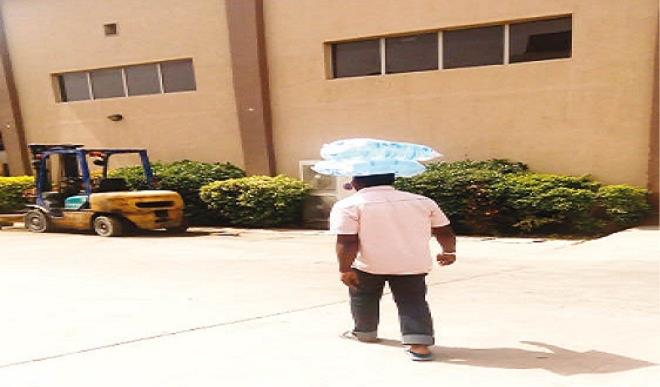Kano residents grumble over hot weather
Residents in Kano metropolis are complaining over the excessive hot weather being experienced in the city, with most of them saying they are unable to sleep at night. Kano Chronicle reports that the heat is compounded by the persistent scarcity of petrol and epileptic supply of electricity being witnessed across the country. Our reporter learnt […]


Residents in Kano metropolis are complaining over the excessive hot weather being experienced in the city, with most of them saying they are unable to sleep at night.
Kano Chronicle reports that the heat is compounded by the persistent scarcity of petrol and epileptic supply of electricity being witnessed across the country.
Our reporter learnt that while a few people can afford generators to power their fans or air-conditioners in order to sleep comfortably, majority of the poor residents have no choice but to endure the scorching heat.
Tasiu Garba, a resident of Unguwa Uku quarters lamented that since the heat set in, his consumption of petrol has increased because apart from getting it for his car, he has to also refuel his generator in order to get a little respite from the heat.
“We are indeed experiencing a very difficult time. It appears that every year we have to go through this heat condition without electricity and without fuel. A lot of people may end up getting sick if they cannot get a relief from this heat,” he said.
Another resident, a bricklayer who simply identified himself as Auwalu said it is very difficult for people like him to work because of the excessive heat from the sun.
“As labourers working on construction sites, it is very hard to endure the fierce heat from the sun. But because this is our only way of making a living, we have little other choice. But we appeal to our employers to pity us and allow us take rests from time to time,” he said.
On her part Asma’u Sani, a mother of four, complained that since the hot season began, she and her children had not been having sufficient sleep.
“Every night, I open all the windows of my rooms so that we can enjoy the occasional light breeze that blows around, but most of the time, I have to sacrifice my own sleep in order to fan my children so that they can sleep,” she said.
“This is because we rarely have electricity. The shortage of electricity supply is so acute that we sometimes spend up to three or four days without getting it and even when we are lucky to have it, it usually doesn’t last for up to one hour,” she added.
An expert on environment, Engineer Mustapha Muhammad, who is the Director of Pollution Control at the Kano state Ministry of Environment, said the current hot weather was a symptom of climate change, which results from industrialization.
“Some of the signs of climate change are that where you expect less rain, you see heavy rain, where you expect more rain, you see little or no rain and where you expect the sun, you see more sunlight than normal,” he said.
Mustapha also listed sun burn, dehydration, heat stroke and cancer as some of the health effects of constant exposure to excessive heat.
“This extreme heat can force the body into overdrives as it tries to cool down through perspiration or even evaporation. In particular young children, older people and the sick are at risk. What happens is that the sun releases certain light called UV or ultraviolet light.
This light can cause sun burn or even cancer. It can also cause dehydration and can result in heat stroke or even death,” he said.
On how to prevent these health effects, the expert advised people to drink a lot of water, take more shower and avoid exposure to the sun from the hours of 11am to 3pm when temperatures are normally very high.
He added that planting trees and flowers and disposal of plastic waste materials can also help in reducing heat.
“Any kind of vegetation such as trees and flowers produce oxygen that we inhale while helping to cool down the temperature. And people can also sprinkle water on their mattress or blankets before sleeping at night. This helps them to sleep comfortably,” he said.
